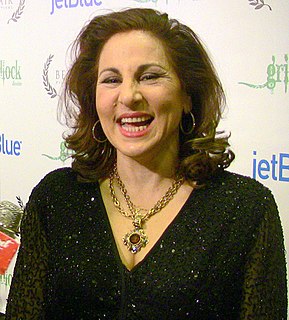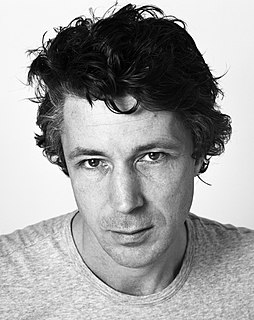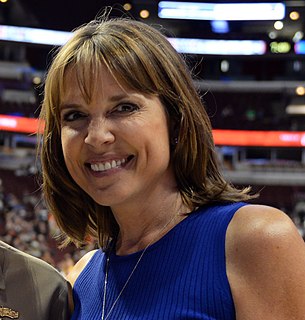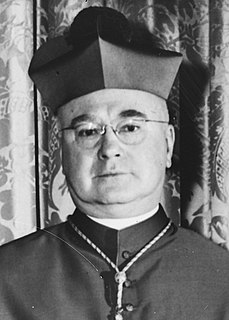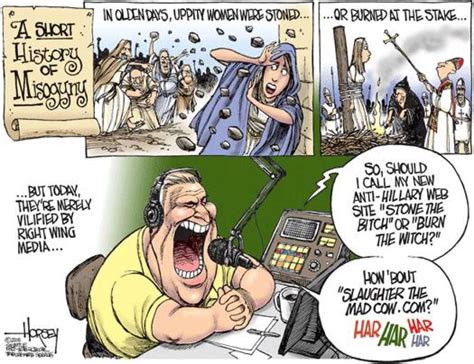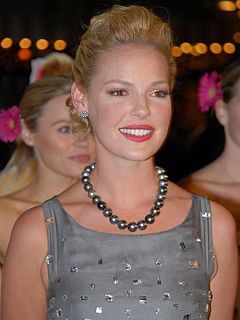A Quote by Alan Alda
When I started out as an actor, I thought, Here's what I have to say; how shall I say it? I began to understand that what I do in the scene is not as important as what happens between me and the other person. And listening is what lets it happen. It's almost always the other person who causes you to say what you say next. You don't have to figure out how you'll say it. You have to listen so simply, so innocently, that the other person brings about a change in you that makes you say it and informs the way you say it.
Related Quotes
Listening is terribly important if you want to understand anything about people. You listen to what they say and how they say it, what they share and what they are reticent about, what they tell truthfully and what they lie about, what they hope for and what they fear, what they are proud of, what they are ashamed of. If you don't pay attention to other people, how can you understand their choices through time and how their stories come out?
I need to say how I feel.aIf you were a political person before, and you just happened into a movie, to stop being a political person makes no sense. I always laugh and say, 'Dudes, if I have to choose, I'm a political person first. I would never do another movie again and be completely happy.' I need to say how I feel.
If something doesn't turn out as planned, you will ask yourself, 'How did I create that? What was I thinking? What were my beliefs? What did I say or not say? What did I do or not do to create that result? How did I get the other person to act that way? What do I need to do differently next time to get the result I want?'
You
cannot assume that somebody can define you. You cannot
assume that the other person is right. No matter how they
say it to you, no matter with how much force they say, ‘Oh
my god, you’ll never make it; oh my god, you’re not bright;
you could never do this’—that’s one person. I can’t tell you
how many people told me I would never be an actor.
Marvin Gaye said there's a song inside of me and I can't get it out. And I know it's in there, and I can feel that it's in there, and I can't get it out. There's so much that I want to say, and I haven't been able to figure out how to say it in my art. I can only say it in ham-fisted, clumsy, nonpoetic ways, and I'm trying to figure out how to talk about life and talk about love and talk about pain and trials and tribulation in an artistic form.
I almost literally wake up in the morning starting to think of my next idea. It's almost always driven by what's in the news. The hard part, really, is getting from knowing what I want to say to figuring out how to say it in an image. I'm still not entirely sure how to explain how that happens... Suddenly, something just works.
When a Tralfamadorian sees a corpse, all he thinks is that the dead person is in bad condition in the particular moment, but that the same person is just fine in plenty of other moments. Now, when I myself hear that somebody is dead, I simply shrug and say what the Tralfamadorians say about dead people, which is "So it goes.
The other, the other aspect when I say I'm an actor is that as an actor you make this imaginative leap into being somebody else, that's to say the muscle of the imagination is as important as any other of the muscles in your body, and so it is something about this instinct in space and time which for me I associate with being an actor rather than a director.
They say, "Katie, you're wrong." And if I say, "How dare you say that? I have studied and studied." Or, "I am an expert in" whatever area we're talking about. Or, "No, you are wrong! And I think you're rude!" Or anything like that, and if we don't say it out loud, maybe we think it, but that's stressful. The moment I've defended, in any way, I've started the war.


